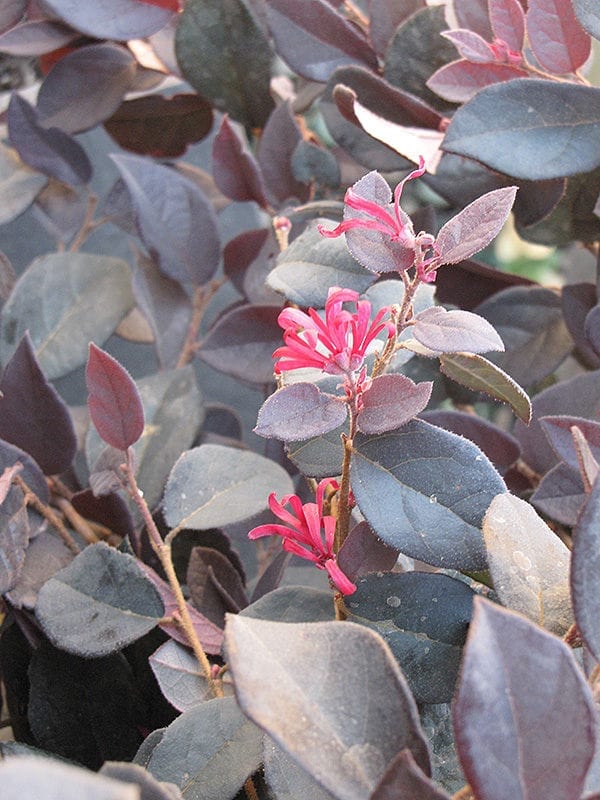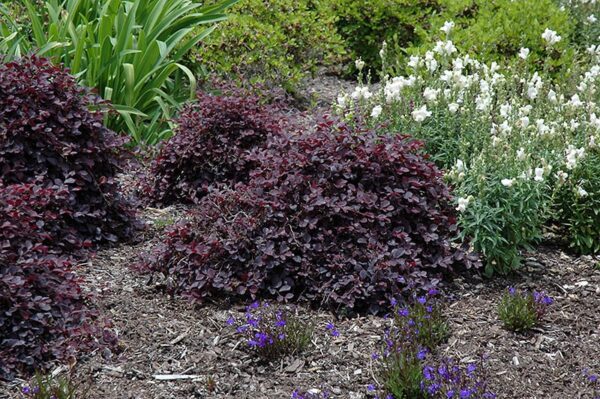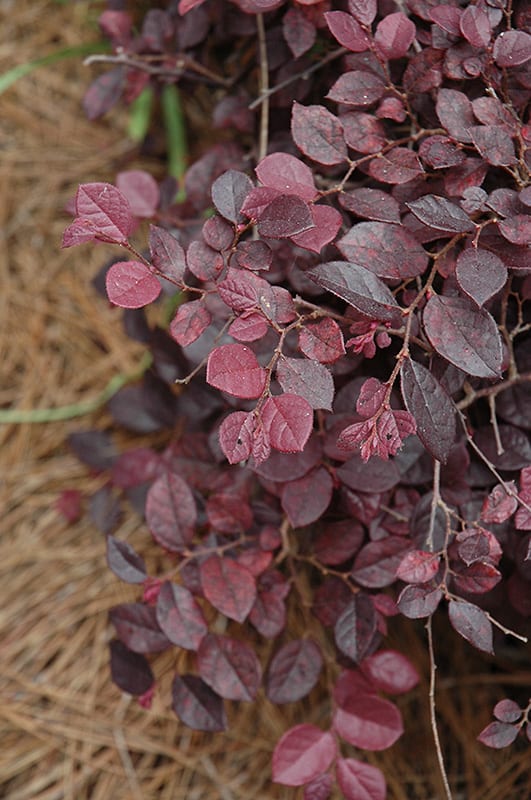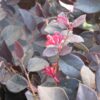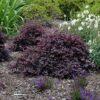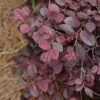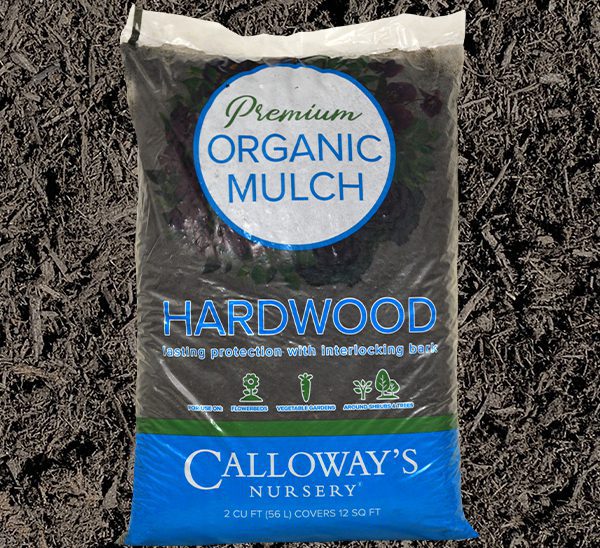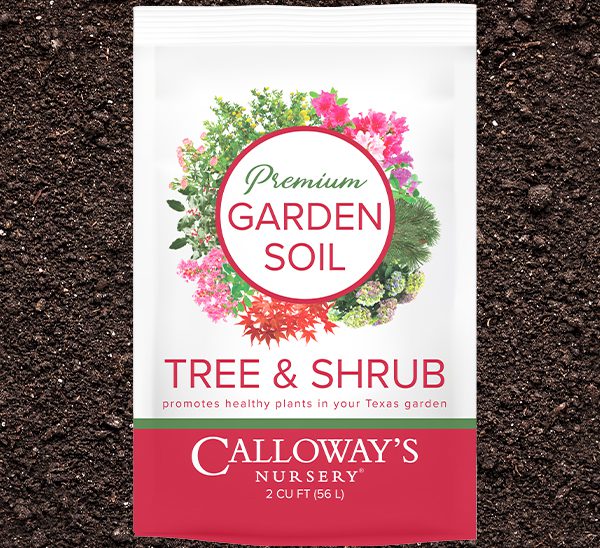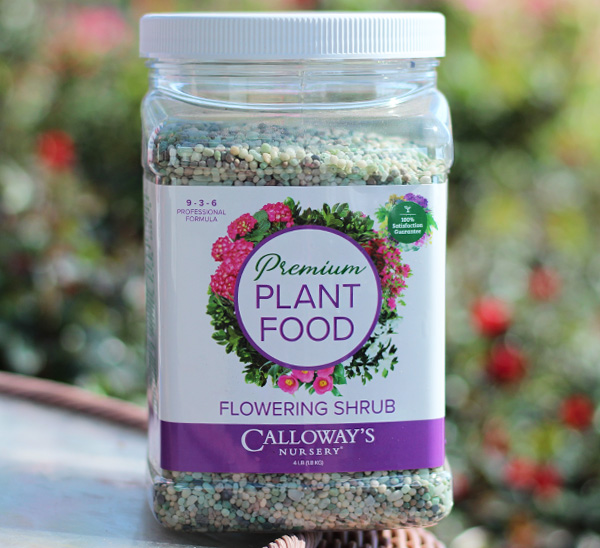Images provided by NetPS Plant Finder Tool
Purple Pixie® Fringe Flower
One of the showier low-profile shrubs available, with fine rich magenta-pink strap-like flowers literally smothering the plant, foliage is a stunning purple that is sure to please; a well-behaved shrub for groundcover or garden.
Please contact your local store for product availability.
Find a garden center near you.
Species: chinense
Other Species Names: Chinese Fringe Flower, Chinese Witch Hazel
Plant Height: 24 in.
Spread: 60 in.
Evergreen: Yes
Plant Form: mounded
Emergent Foliage Color: burgundy
Summer Foliage Color: purple
Minimum Sunlight: partial shade
Maximum Sunlight: full sun
Purple Pixie Fringeflower is draped in stunning fragrant fuchsia strap-like flowers along the branches in mid spring. It has attractive purple foliage which emerges burgundy in spring. The oval leaves are highly ornamental and remain purple throughout the winter. The fruit is not ornamentally significant.
Purple Pixie Fringeflower is a multi-stemmed evergreen shrub with a mounded form. Its relatively fine texture sets it apart from other landscape plants with less refined foliage.This is a relatively low maintenance shrub, and should only be pruned after flowering to avoid removing any of the current season's flowers. It has no significant negative characteristics.Purple Pixie Fringeflower is recommended for the following landscape applications;Mass PlantingHedges/ScreeningGeneral Garden Use
Purple Pixie Fringeflower will grow to be about 24 inches tall at maturity, with a spread of 5 feet. It tends to fill out right to the ground and therefore doesn't necessarily require facer plants in front. It grows at a medium rate, and under ideal conditions can be expected to live for 40 years or more.This shrub does best in full sun to partial shade. It prefers to grow in average to moist conditions, and shouldn't be allowed to dry out. It is particular about its soil conditions, with a strong preference for rich, acidic soils. It is somewhat tolerant of urban pollution. Consider applying a thick mulch around the root zone in winter to protect it in exposed locations or colder microclimates. This is a selected variety of a species not originally from North America.
